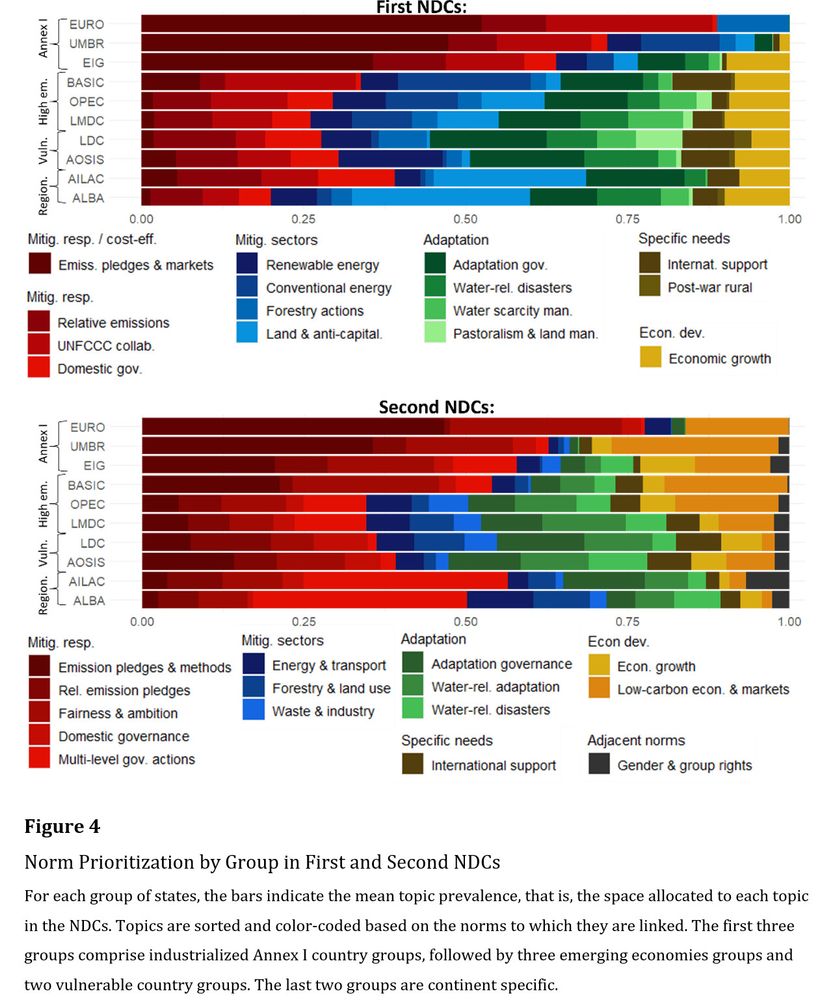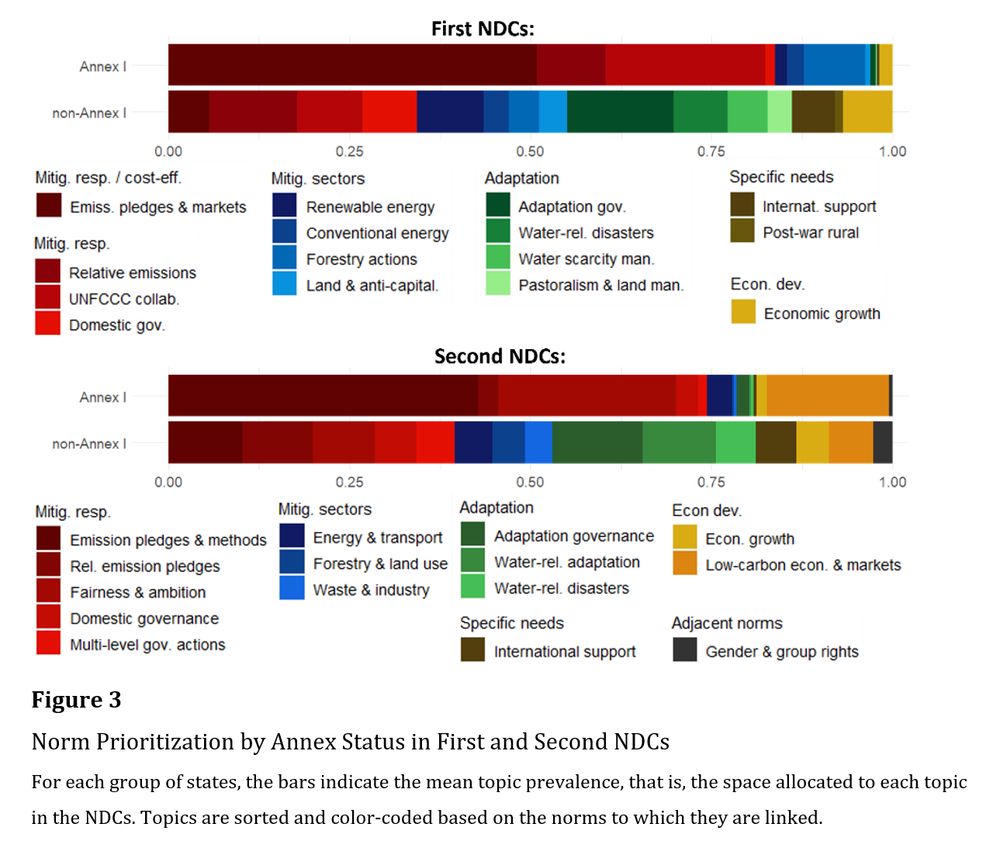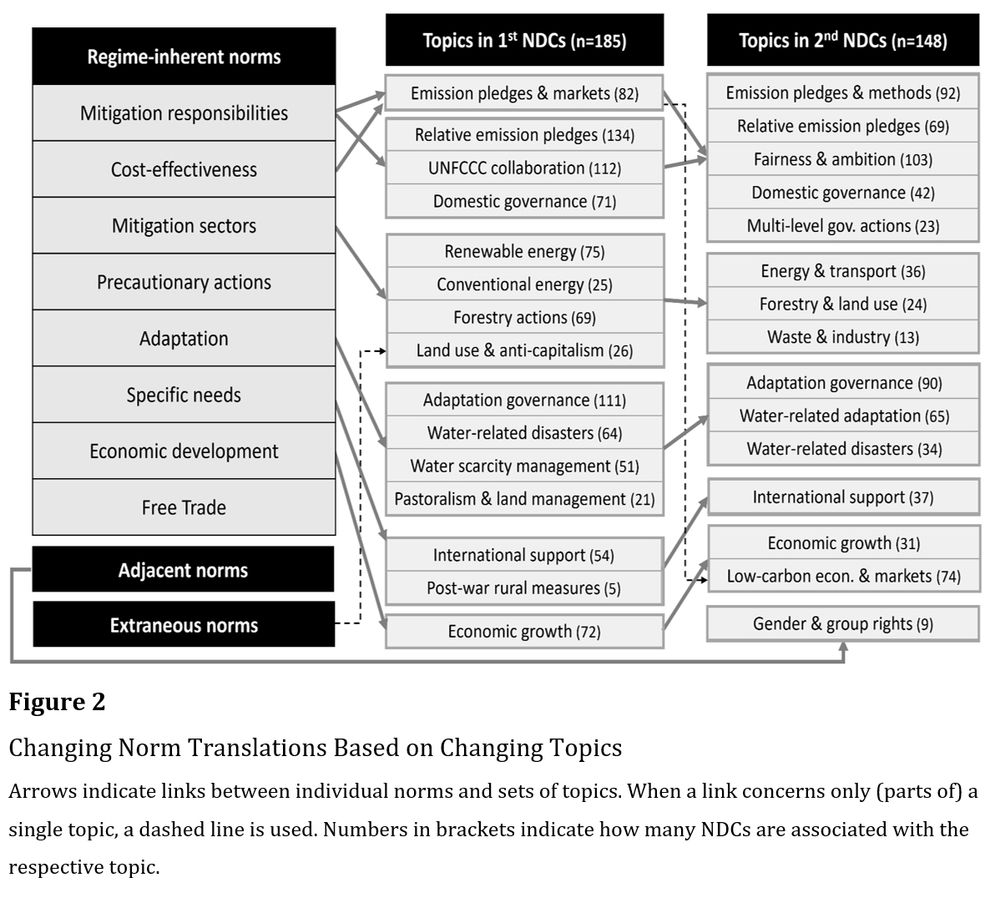Recent scholarship highlights Global South countries not only as norm-takers or localizers but also as norm-makers. Contributing to this shift, I conceptualize why these countries contest and lobby for alternative norm interpretations in international negotiations.
Recent scholarship highlights Global South countries not only as norm-takers or localizers but also as norm-makers. Contributing to this shift, I conceptualize why these countries contest and lobby for alternative norm interpretations in international negotiations.
The paper is available here: doi.org/10.1162/glep...
Looking forward to the 3rd NDCs in 2025!
The paper is available here: doi.org/10.1162/glep...
Looking forward to the 3rd NDCs in 2025!
Emerging & industrialized economies (Umbrella, EU, BASIC) present plans for green growth.
In contrast, developing countries with lower income (LDCs) emphasize conventional growth plans to combat poverty.

Emerging & industrialized economies (Umbrella, EU, BASIC) present plans for green growth.
In contrast, developing countries with lower income (LDCs) emphasize conventional growth plans to combat poverty.



